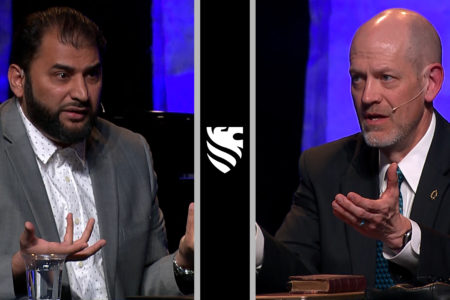At the “With Liberty and Justice for All” conference in Clearwater, FL, a thought-provoking panel took place. I was joined by John Connell, Bill Roach, James Lindsay, Jon Benzinger, and Andy Woodard as we delved into an intriguing discussion. Their focus was on understanding the mechanisms behind the rise of reflexive movements within the church, such as the Neo-Marxist Woke Church movement on the fringe left (Marcusians) and the reactionary Christian Nationalism movement on the cringe right (Schmittians). These movements, they argued, possess the ability to gain momentum and insidiously seize control of the church, acting as parasitic forces that disrupt and dismantle previously united groups. In both situations, entryism was the primary strategy employed by both external and internal agitating forces.
Entryism is a political strategy in which individuals or groups seek to gain influence or control over an existing organization, such as a political party or an affinity group (religious organizations would fall within this category), with the aim of promoting their own “new” agenda or ideology. The entyrist strategy involves infiltrating the organization and working from within to shape its policies, direction, and decision-making processes. Entryists often penetrate the existing organization under false pretenses or with hidden intentions (Machiavellianism). Entryists will attempt to recruit like-minded individuals to increase their influence and control of the group that they wish to manipulate.Once the entryists absorb approximately 10%-15% of the organization’s followers, the entryists can then use their new, combative, aggressive political factions to advance their ideologies and goals.
Recognizing the emergence of entryism as a prevalent strategy, in 2021 I took the initiative to record a podcast dedicated to dissecting and explaining this tactic. In the podcast, I delved into the potential consequences of this new movement, shedding light on how it could eventually manifest itself in reformed evangelicalism.
Entryism can damage the integrity of an organization or government in several ways:
- Distortion of theology or ideology: Entryists may seek to shift the organization’s ideology or policy positions to align with their strategic operational goals. This can lead to a dilution or abandonment of the organization’s original principles, compromising its integrity and alienating its existing members or supporters. Within the Reformed Evangelical Church, entryists have adopted a postmodern approach that rejects objective truth. Instead, they embrace a radical subjectivism that prioritizes operational success as their primary goal.
- Internal divisions and conflicts: Entryism creates internal divisions within the organization as infiltrators clash with existing members who resist the changes being imposed. Entryists employ a two-pronged approach when infiltrating an organization. First, they entice legacy members with incentives to gain their support. However, when faced with resistance from certain members who refuse to be swayed, entryists resort to coercion tactics to achieve their objectives. This leads to infighting, factionalism, and a breakdown of unity, weakening the organization’s effectiveness and credibility.
- Loss of public trust: If entryism is exposed or becomes apparent, it can erode public trust in the organization or government. The public may view the organization as being manipulated by external forces or as lacking authenticity and genuine representation. This can damage its reputation and legitimacy.
- Undermining the leadership hierarchy: Entryism can undermine the democratic processes within an organization or government by manipulating decision-making procedures, stacking committees or boards with leveraged individuals, or suppressing dissenting voices.
I believe that this discussion will provide you with valuable insights into how both the Woke Church movement and Christian Nationalism have employed entryism as a means to penetrate and influence the church with their respective political agendas and collectivist ideologies.






Recent Comments